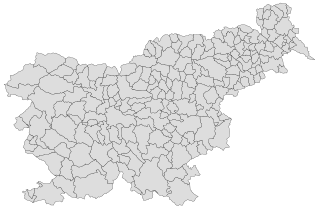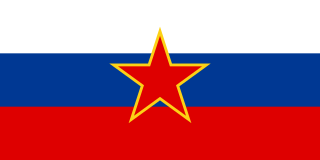| Personal information | |||||||||||||||||||||||
|---|---|---|---|---|---|---|---|---|---|---|---|---|---|---|---|---|---|---|---|---|---|---|---|
| Born | 8 February 1980 | ||||||||||||||||||||||
Medal record
| |||||||||||||||||||||||
Rok Kolander (born 8 February 1980 in Maribor) is a Slovenian rower who represented Slovenia at the 2008 Summer Olympics in the Men's Coxless Four. [1] [2]
| Personal information | |||||||||||||||||||||||
|---|---|---|---|---|---|---|---|---|---|---|---|---|---|---|---|---|---|---|---|---|---|---|---|
| Born | 8 February 1980 | ||||||||||||||||||||||
Medal record
| |||||||||||||||||||||||
Rok Kolander (born 8 February 1980 in Maribor) is a Slovenian rower who represented Slovenia at the 2008 Summer Olympics in the Men's Coxless Four. [1] [2]

Slovenia, officially the Republic of Slovenia, is a country in southern Central Europe. It is bordered by Italy to the west, Austria to the north, Hungary to the northeast, Croatia to the southeast, and the Adriatic Sea to the southwest. Slovenia is mostly mountainous and forested, covers 20,271 square kilometres (7,827 sq mi), and has a population of 2.1 million. Slovenes constitute over 80% of the country's population. Slovene, a South Slavic language, is the official language. Slovenia has a predominantly temperate continental climate, with the exception of the Slovene Littoral and the Julian Alps. A sub-mediterranean climate reaches to the northern extensions of the Dinaric Alps that traverse the country in a northwest–southeast direction. The Julian Alps in the northwest have an alpine climate. Toward the northeastern Pannonian Basin, a continental climate is more pronounced. Ljubljana, the capital and largest city of Slovenia, is geographically situated near the centre of the country.

Slovene, or alternatively Slovenian, is a South Slavic language, a sub-branch that is part of the Balto-Slavic branch of the Indo-European language family. It is spoken by about 2.5 million speakers worldwide, mainly ethnic Slovenes, the majority of whom live in Slovenia, where it is the sole official language. As Slovenia is part of the European Union, Slovene is also one of its 24 official and working languages.

Ljubljana is the capital and largest city of Slovenia. It is the country's cultural, educational, economic, political and administrative center.

The Slovenes, also known as Slovenians, are a South Slavic ethnic group native to Slovenia, and adjacent regions in Italy, Austria and Hungary. Slovenes share a common ancestry, culture, history and speak Slovene as their native language. They are closely related to other South Slavic ethnic groups, as well as more distantly to West Slavs.

Slovenia is divided into 212 municipalities, of which 12 have urban (metropolitan) status. Municipalities are further divided into local communities and districts.

Nogometni klub Maribor is a Slovenian professional football club based in Maribor, Slovenia. It competes in the Slovenian PrvaLiga, the top tier of the Slovenian football league system. Nicknamed "The Purples", the club was founded on 12 December 1960. They are regarded as a symbol of Slovenian football, particularly in their home region of Styria in northeastern Slovenia.

The Slovenia national football team represents Slovenia in men's international football and is controlled by the Football Association of Slovenia, the governing body for football in Slovenia. The squad is under the global jurisdiction of FIFA and is governed in Europe by UEFA. It competes in the three major professional tournaments available to European nations: the FIFA World Cup, UEFA Nations League and the UEFA European Championship. Slovenia played its first official match in 1992, one year after the country gained independence from Yugoslavia. The majority of Slovenia's home matches are played at Stožice Stadium in Ljubljana.

The Football Association of Slovenia is the governing body of football in Slovenia. It organizes the first division, second division, third division, Slovenian Cup, Slovenian Women's League, and other competitions. It is also responsible for the Slovenia national football team and the Slovenia women's national football team. It was founded as Ljubljana Football Subassociation on 24 April 1920.

Radiotelevizija Slovenija – usually abbreviated to RTV Slovenija – is Slovenia's national public broadcasting organization.

Slovenia has participated in the Eurovision Song Contest 28 times since its debut in 1993, having hosted a qualification round in Ljubljana for seven countries due to the influx of new nations wishing to join the Eurovision Song Contest. Having only missed the event twice in 1994 and 2000 due to the relegation rule after a poor average score in the 1990s, Slovenia's best result is seventh position achieved on two occasions; in 1995 with "Prisluhni mi" performed by Darja Švajger and in 2001 with Nuša Derenda and "Energy". Since the introduction of the semi-finals in 2004, Slovenia has qualified for the final on seven occasions. As of 2023, Slovenia has not made it to the top ten since their seventh place finish in 2001, only making it to the thirteenth position in 2002 and 2011.

Omar Kareem Naber is a Slovenian singer, songwriter and guitar player. He first represented Slovenia at the Eurovision Song Contest 2005 in Kyiv with the song "Stop" and for a second time at the Eurovision Song Contest 2017 in Kyiv with the song "On My Way", but failed to qualify to the final on both occasions.

Nogometni klub Olimpija Ljubljana, commonly referred to as Olimpija Ljubljana or simply Olimpija, is a Slovenian professional football club based in Ljubljana that competes in the Slovenian PrvaLiga, the top division of the Slovenian football league system. They have won three Slovenian PrvaLiga titles and four Slovenian Cups.

The Ten-Day War, or the Slovenian War of Independence, was a brief armed conflict that followed Slovenia's declaration of independence from Yugoslavia on 25 June 1991. It was fought between the separatists of the Slovenian Territorial Defence and the Yugoslav People's Army. It lasted from 27 June 1991 until 7 July 1991, when the Brioni Accords were signed.

The Slovenian PrvaLiga, currently named Prva liga Telemach due to sponsorship reasons, also known by the abbreviation 1. SNL, is the top level of the Slovenian football league system. Contested by ten clubs, it operates on a system of promotion and relegation with the Slovenian Second League. Seasons typically run from July to May with each team playing 36 matches.

The Socialist Republic of Slovenia, commonly referred to as Socialist Slovenia or simply Slovenia, was one of the six federal republics forming Yugoslavia and the nation state of the Slovenes. It existed under various names from its creation on 29 November 1945 until 25 June 1991.

Edvard Ravnikar was a Slovenian architect.

Education in Slovenia from primary to secondary schooling is regulated by the National Education Institute of the Republic of Slovenia (ZRSŠ), whose scope includes education programmes, delivery and development.

Russia–Slovenia relations are foreign relations between Russia and Slovenia. Both countries established diplomatic relations on May 25, 1992. Russia has an embassy in Ljubljana. Slovenia has an embassy in Moscow and two honorary consulates. Until 2022, Russia had five honorary consuls in Slovenia, but Slovenia withdrew its consent to the appointments due to the Russian invasion of Ukraine. Both countries are full members of the Council of Europe and the Organization for Security and Co-operation in Europe.

The statistical regions of Slovenia are 12 administrative entities created in 2000 for legal and statistical purposes.